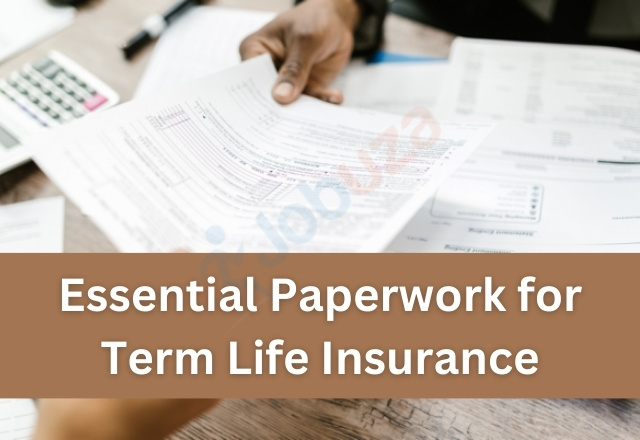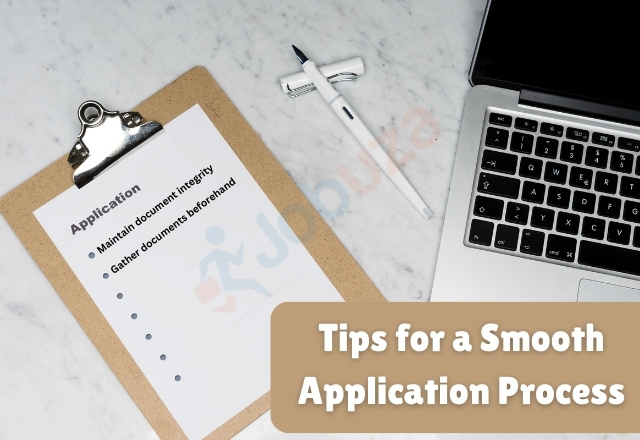A term life insurance scheme provides a safety net as it guarantees financial aid to your family in case of your death during the policy term. To make sure applying goes smoothly and there aren’t any problems down the road, here’s a simple guide to the important papers you’ll probably need, plus a few extra things to think about:
Proof of Income
to determine coverage amount
- Salary earners: The most significant factor when figuring out the required life insurance coverage is a steady income. To demonstrate your financial ability, submit the last 3 to 6 months’ salary slips or bank statements (covering 6 to 12 months) which clearly show your salary credit. By doing this, the insurance company has a chance to evaluate your affordability and suggest a coverage amount that is consistent with your wages and the survivors’ potential needs. Normally, the amount of a death benefit payout is a function of income.
- Self-employed individuals: For those who are self-employed, income verification may require submitting tax returns for the past 3 years. At the same time, the accounting for income certified by a chartered accountant has to be added to the list. It guarantees that the insurer is fair enough to evaluate your financial stability which defines the accurate premium amount based on your level of affordability.
Identity Proofs
all self-attested
- Proof of identity: Personal identification has become a universal practice for financial products and services. Offer a PAN card or a Driver’s license to make it clear who you are.
- Proof of address: Initializing your current address is essential for record-keeping and future communication. Present an Aadhaar card, utility bills (electricity), or rent agreement in order to verify your address.
Health History Proofs
if applicable
Honesty plays the primary role when disclosing your health condition. Be frank on any known ailments or operations that you might have endured. A failure to disclose any of these things could end up with your claim being denied, even if the condition that had not been disclosed was not directly related to the cause of your death.
Attach files including medical history files, prescriptions, lab reports, discharge summaries (if hospitalized) to give the insurer a clear view of your health status and enable them to do a correct risk assessment. This is the information the insurer will use to calculate an insurance premium which reflects potential risks of insuring you.
In some cases, when records are unavailable regarding a prior medical operation, a personal statement by you describing the surgery is acceptable instead. However, always inquire with the insurance company to learn their precise details.
COVID-19 Vaccination Certificate
mandatory
Mandatory COVID-19 vaccination is now a condition for term life insurance. All insurance companies need evidence of full COVID-19 vaccination with the vaccine name and dose dates. This further layer of knowledge assists the insurer to gauge your overall health profile and the related risks that you might incur in the insured.
Proposal Form
the cornerstone of your application
The proposal form is the starting point for your insurance policy; it is a summary of the disclosures and the contract between you and the insurer. The insurance agent usually does it according to details you informed him or her with.
Be meticulous and carefully check the proposal form before signing (whether physical or digital) for accuracy and completeness in details. This includes personal information, financial details (including income disclosure), health history, and how much cash benefit you choose to be paid. Any inconsistencies between your proposal form and the real situation can be a problem in the future and the claim can be rejected.
Tips for a Smooth Application Process
- Gather documents beforehand: Having all the documents in one folder expedites the application process and saves you time.
- Maintain document integrity: Submit real documents to evade claim rejection arising from inconsistencies.
- Double-check for accuracy: As the proposal form acts as a binding contract, it is imperative to meticulously review each detail for accuracy before signing. This includes your personal details such as your name, income details, medical history and the coverage value of your choosing.
- Keep copies for your records: Keep copies of submitted documents for your own future use and reference.
Insurance Policy: Through knowing the importance of these papers and offering the accurate information, you can make it quickly and easily. In this way, you will be assured of your family being financially capable even after your departure; also, you will have a hassle-free claim settlement process.
For more Updates: Click here



